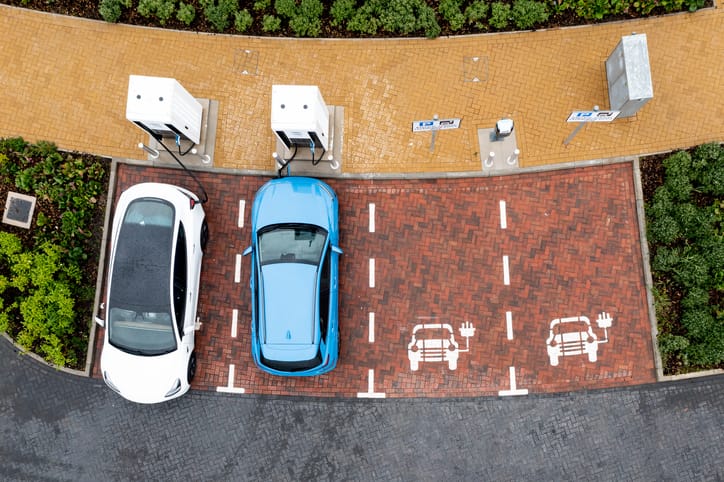The Environmental Impact of Car Manufacturing: Comparing Brands and Practices

The love affair with the automobile has a dark side. Car manufacturing is a complex process with a significant environmental footprint. From resource extraction and material production to assembly and logistics, every stage consumes energy and generates pollution. While electric vehicles (EVs) are touted as a greener alternative, even their production has environmental impacts.
This article explores the environmental impact of car manufacturing, compares the practices of different brands, and highlights some of the efforts being made towards a more sustainable future.
Environmental Concerns Throughout the Car's Lifecycle
A car's environmental impact goes beyond tailpipe emissions. Here's a breakdown of the key stages:
- Material Extraction and Production: Mining for metals, producing steel, aluminum, and plastics are energy-intensive processes that generate air and water pollution. For example, aluminum production is a major contributor to greenhouse gas emissions.
- Manufacturing: Assembly plants consume vast amounts of energy and create wastewater. Painting processes can release volatile organic compounds (VOCs) into the atmosphere.
- Supply Chain: The transportation of parts and vehicles adds to the overall environmental burden.
- Use Phase: For gasoline-powered cars, tailpipe emissions are a major concern, contributing to air pollution and climate change. EVs have lower emissions during use but rely on an electricity grid that might still use fossil fuels.
- End-of-Life: Improper disposal of car batteries and components can lead to environmental hazards.
Comparing Brands and Environmental Practices
Several car manufacturers are taking a proactive approach to sustainability. Let's look at some examples:
- Tesla: A leader in the EV revolution, Tesla focuses on battery technology and innovation. However, their reliance on a complex supply chain and energy-intensive battery production raises concerns.
- Toyota: A pioneer in hybrid technology, Toyota's Prius lineup offers a lower-emission option. They also invest in sustainable materials and production processes.
- Ford: Ford is making significant strides with its electric F-150 Lightning and Mustang Mach-E. The company is also investing in renewable energy sources for its factories.
- BMW: BMW's i Series electric vehicles showcase their commitment to electrification. They are also working with suppliers to improve sustainability practices throughout the supply chain.
- Honda: Honda's Clarity series offers both electric and fuel cell options. They aim to reduce CO2 emissions from production by 50% by 2050.
It's important to note that this is not an exhaustive list, and brands are constantly evolving their sustainability strategies. Here are some factors to consider when comparing car manufacturers' environmental impact:
- Fuel Efficiency: For gasoline-powered vehicles, fuel efficiency is a key indicator of environmental impact. Look for cars with high MPG ratings.
- Electric Vehicle Range and Battery Technology: For EVs, consider the battery's range and how it's sourced and produced.
- Use of Sustainable Materials: Manufacturers that use recycled materials or source raw materials responsibly have a lower environmental footprint.
- Manufacturing Processes: Look for companies investing in renewable energy sources for their factories and implementing cleaner production methods.
- End-of-Life Vehicle Management: Does the manufacturer have programs for recycling or responsibly disposing of old vehicles?
Challenges and the Road Ahead
The shift towards a more sustainable car manufacturing industry faces several challenges:
- Battery Production: The mining and processing of materials for EV batteries can have environmental consequences.
- Supply Chain Complexity: Sustainability needs to be addressed across the entire supply chain, which can be complex and geographically dispersed.
- Consumer Behavior: Consumers need to be aware of the environmental impact of different car options and prioritize sustainability when making purchasing decisions.
Looking Towards a Greener Future
Despite the challenges, there are promising developments:
- Innovation in Battery Technology: Research is ongoing to develop more sustainable battery production methods and improve battery recycling.
- Circular Economy Principles: Manufacturers are exploring ways to design cars for easier disassembly and material reuse.
- Renewable Energy Integration: Shifting to renewable energy sources for car production will significantly reduce the industry's environmental footprint.
Conclusion
Car manufacturing has a significant impact on the environment. However, a growing awareness of this issue is driving positive change. By comparing brands based on their sustainability practices and making informed choices, consumers can play a role in pushing the industry towards a greener future. As technology continues to evolve and consumer demand for sustainable options grows, we can expect to see a significant decrease in the environmental impact of car manufacturing.
